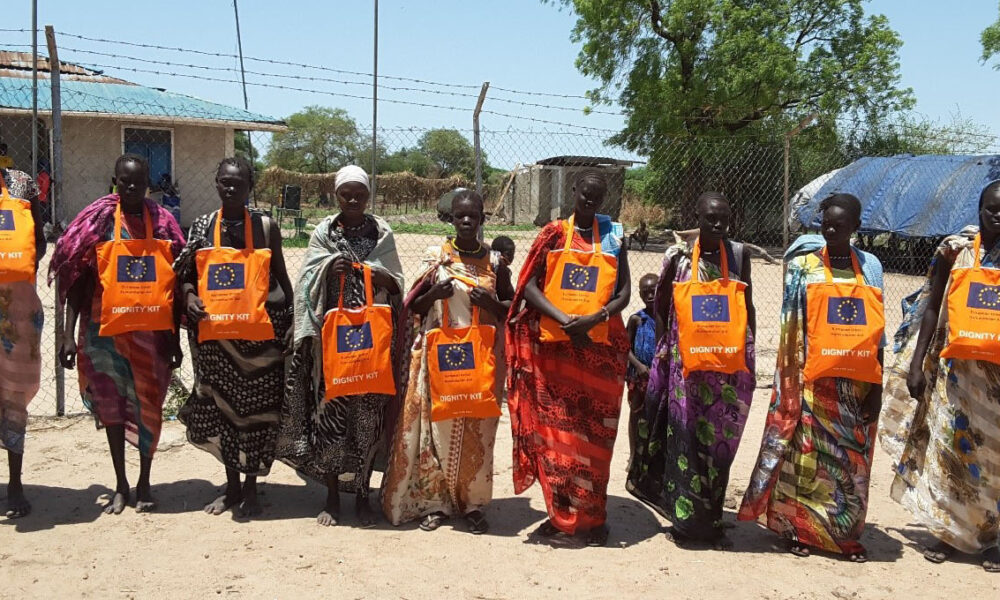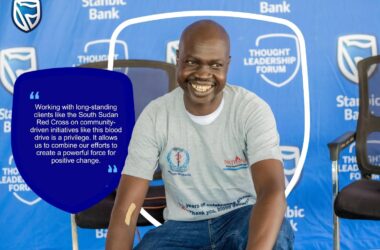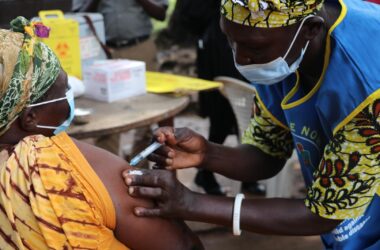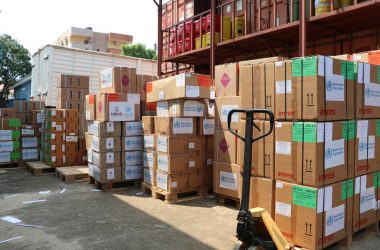South Sudan has high prevalence cases of gender-based violence according to findings of a nationwide prevalence survey.
The alarming level of GBV is due to several causes such as prolonged and escalating conflicts coupled with negative social/cultural norms.
Exposure of young people especially girls to GBV, comes with negative consequences on their development and can have devastating effects throughout their lives.
Engaging men and boys in all their diversity, as short and long-term partners in GBV prevention is essential to tackling the determinants of violent attitudes and behaviour, for a future, where everyone can live and thrive without threats.
Unlike women and girls, men and boys may face barriers to accessing much-needed support services due to the stigma of male victimization and strong disbelief that men and boys can be survivors of gender-based violence.
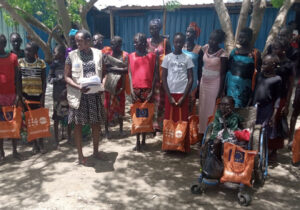
With support from the European Commission’s Civil Protection and Humanitarian Operations department (DG-ECHO), UNFPA runs an integrated program for prevention and response to GBV including knowledge, availability, and accessibility of GBV services and support groups and access to sexual and reproductive health (SRH) services.
These integrated programs elevate the voices of women and girls who are GBV survivors, advocates, and leaders of GBV by addressing social norms and fully engaging with men and boys in their roles as community leaders, support partners, caregivers, perpetrators, and/or survivors. This engagement includes trauma-informed restorative justice responses to reduce recidivism and break cycles of violence.
“Fleeing the conflict in Sudan, I was brutalized and distressed. Due to my weak condition, I hardly crossed the border via Joda. When I finally arrived in Malakal town, I was directed to a friendly space for women and girls where UNFPA’s partners provides psychosocial support and access to empowerment opportunities. I was then referred to a one-stop center supported by UNFPA where I accesses medical, psychosocial, and legal support. The service providers never abandoned me until the last minute.” Rose (not real name), a South Sudanese returnee from Sudan.
UNFPA works with all stakeholders to change attitudes and behaviors that make GBV acceptable in the community by supporting women and girls’ friendly spaces and one-stop centers across the country that provide GBV prevention and response services.
In women and girls’ friendly spaces, women and girls feel emotionally and physically safer and enjoy an environment where they can feel trauma-free; excessive stress; violence, or abuse and have access to information, education, and economic empowerment.
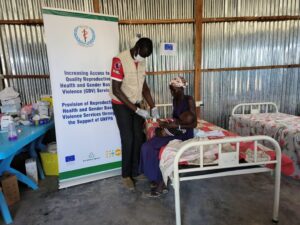
UNFPA-supported facilities provide integrated gender-based violence and sexual and reproductive health services including clinical management of rape cases.
“Despite the threats GBV poses to the protection of women and girls, in most cases, it is rarely discussed within communities. Many survivors therefore prefer not to report incidents of GBV out of fear or taboo. With continuous community sensitization and awareness of services, those affected including survivors have reported cases and taken prevention initiatives within communities” Ms. Norin Nyanjang, Project officer-Mayom.
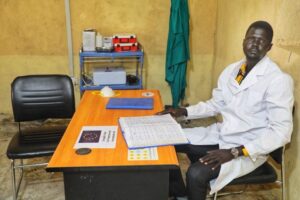
UNFPA strengthens the capacities of service providers in GBV case management, clinical case management of rape (CMR), and provision of quality psychosocial services. Similarly, UNFPA works with partners from different sectors to conduct assessments through GBV safety audits whose recommendations are used to plan a multi-sectoral response that will provide access to services and improve reporting of GBV.
“UNFPA is grateful for the contribution of DG-ECHO which has enabled us to expand provision of much needed GBV prevention and response interventions. We are committed to scaling up, engaging men and boys to promote positive masculinity and build capacity of service providers. Our localization strategy and partnership with the Government of South Sudan gives us the opportunity to achieve impact with limited resources.” Dr Ademola Olajide, UNFPA Representative in South Sudan.
The Support has enabled UNFPA to strengthen its partnership with the community and expand GBV case management and Clinical Management of Rape (CMR) services to remote areas.
“Our strategy is to approach men and boys as stakeholders, survivors, perpetrators, allies, and agents of change and to prioritize early intervention programs and social norm change activities that promote relationships and healthy masculinities. Through this engagement, we plan and implement multi-sectoral projects that strengthen the skills and capacities of women, girls, men, and boys to engage in healthy forms of masculinity while bringing services closer to the community in remote areas.” Dr Hussein Hassan, Emergency Coordinator for UNFPA South Sudan.
The project covers Upper Nile, Jonglei, and Unity States as well as the Greater Pibor Administrative Area (GPAA). The support strengthens the capacity of service providers to prioritize the far-to-reach areas and areas with critical humanitarian needs.

